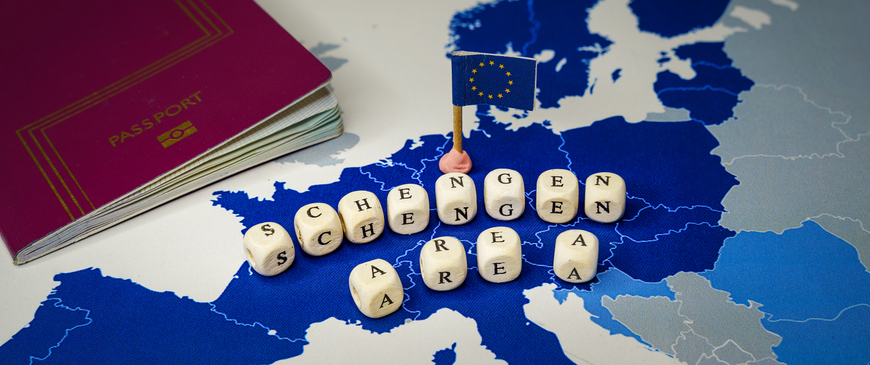
The EU does not need to reform Schengen. It needs to build back trust
The 9/11 attacks were a wake-up call for the West: no country could fight crime and terrorism alone. Domestically, the EU built a borderless legal area where Europeans could freely move, safe in the assumption that criminals would be promptly apprehended, put on trial and extradited, known as the EU’s area of freedom, security and justice (ASFJ). The AFSJ became Schengen’s inseparable companion.
During the first decade of the 21st century, the prospects for European integration looked bright. This was particularly true for two of the icons of integration: the common currency, and the passport-free Schengen area. The 2010s were not kind to either; so far, the 2020s have not been kind to anything at all. As a result of the COVID-19 pandemic, countries have put borders back up. The politics of migration remain toxic and EU countries have not been able to agree on common policies. While Putin’s invasion of Ukraine has galvanised efforts to help those fleeing the country, the crisis may further destabilise EU politics in the long-term. Terrorism and crime are amongst the top ten concerns of European citizens, according to the European Commission, and feature regularly in electoral campaigns across the EU. Meanwhile, the EU’s reliance on a common legal space, in which shared rules are interpreted predictably by independent courts, has been challenged by assaults on the independence of the judiciary in several member-states. Furthermore, the Union’s post-pandemic recovery fund may be susceptible to corruption and, if the money is misspent, anti-EU forces will profit.
Much like the eurozone between 2008 and 2015, the EU’s area of freedom, security and justice has gone through a series of shocks in recent years, whether they relate to migration, asylum policies, security concerns or the rule of law. But, unlike the EU’s single currency area, there have been limited efforts to fix the AFSJ’s multiple shortcomings. Instead, both EU governments and the EU institutions have chosen to follow a piecemeal strategy, treating each blow to the Union’s AFSJ as an isolated incident. This has made sense until now, as it is an easier sell to voters to separate migration issues from, say, the rule of law. But it is not a sustainable strategy anymore.
In essence, every EU crisis over the past decade is the result of waning trust between its member-states. Each of those crises has in turn fed suspicions and made countries more wary of each other. Not all the crises originate in the EU’s deficient AFSJ arrangements. But all of them have had an impact on the bloc’s area of freedom, security and justice. Take the eurozone crisis. Greece’s near-exit from the euro in 2015 unexpectedly shaped Europe’s initial response to the refugee crisis. In 2016, with Athens seemingly unable to control the massive flows of people trying to cross to Europe by sea, talk of a mini-Schengen, which would not include Greece, grew louder in the corridors of Brussels. Having once been accused of almost pushing Greece out of the single currency, then German Chancellor Angela Merkel was “determined not to let Greece fall again” in the words of one of her senior aides. To end the crisis without having to push Greece out of Schengen, Merkel struck a surprise deal with Turkey to return rejected asylum-seekers from Greece.
Beyond the obvious blow to the European project, the most important consequence of the bloc’s gradual loss of mutual trust is that, eventually, it may lead to the exclusion of some EU countries from the Union’s common legal space. That space includes police and judicial co-operation but also the single market: goods, people and, to an extent, services and capital move freely in the EU because citizens and companies alike rely on EU-wide standards, including court rulings. If the judiciary gets captured in a member-state, both civil and criminal law co-operation will become more difficult; businesses will be wary of setting up shop in a country where they may be subject to arbitrary laws; and people’s personal decisions, on issues such as buying a house, having kids or changing jobs, will be affected too.
EU leaders and the EU institutions can no longer pretend that the EU’s common borderless legal area is doing well. The EU needs a new plan to make it more resilient. This plan must include regular performance checks and a set of rights and obligations that finally simplifies the link between Schengen and the AFSJ. Such a plan would need a serious commitment from both EU governments and the Brussels institutions, but would not require changing the treaties.
The EU will not solve its trust problem by laws or court rulings alone, because this is a problem that stems from political, rather than legal, differences. Rebuilding trust will require a higher level of accountability over how AFSJ policies are enacted at a national level. The problem is not necessarily the result of bad faith. There is, more simply, a general lack of understanding of the provisions of the Union’s AFSJ and a lack of ambition to clarify them. Eventually, this could become a very big problem. If Europeans do not find a way to restore a shared understanding of the rules, trust that they will be enacted proportionately and that violations will be penalised, the EU’s fault lines will deepen and governments will further question the logic of open borders and security co-operation. Citizens may start to wonder what the point of the EU is, after all.
Camino Mortera-Martinez is head of the Brussels office at the Centre for European Reform.
